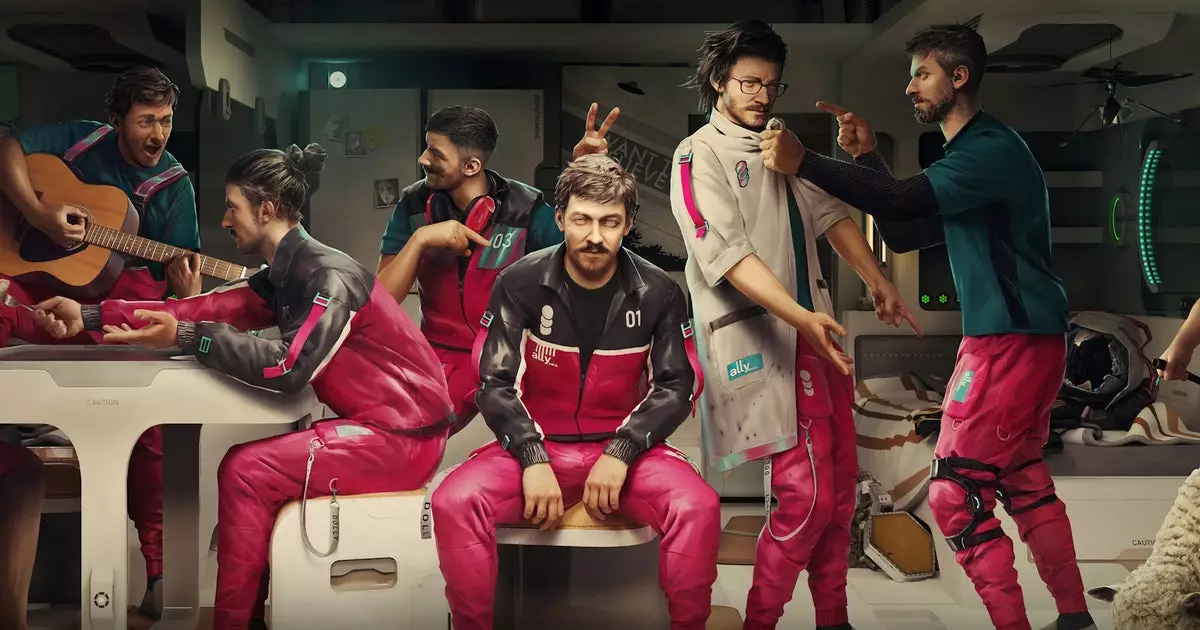The recent disclosures from 11 Bit Studios regarding their use of generative AI in *The Alters* underscore a growing phenomenon in modern game development. As studios face mounting pressures to meet tight deadlines and deliver vast amounts of content, AI tools offer tempting shortcuts—be it for localization, asset placeholders, or even narrative elements. However, this convenience comes with significant responsibilities. The case of *The Alters* highlights that while AI can streamline processes, the way its use is communicated to players is equally, if not more, vital.
11 Bit Studios revealed that generative AI was employed in two principal ways: firstly, for quickly localizing around 10,000 words of text within parody movies included in the game, and secondly, for generating temporary graphic assets during early development stages. This admission came after the game launched without any mention of AI involvement, even though platforms like Steam require developers to disclose such details. The AI-generated text artifact—originally intended as a trivial placeholder—was unfortunately overlooked and made it into the final release, exposing the studio’s lapse in quality control.
The Limits of “Minimal AI Usage” Excuse
The studio repeatedly emphasized that AI contributions represented a tiny fraction—just 0.3% of the game’s overall text—and insisted that the majority of *The Alters* was handcrafted by real humans. This distinction is important and accurate; their core storytelling didn’t hinge on AI-generated content. But it’s precisely because the AI use was minimal that the studio’s failure to be upfront feels like a lost opportunity for honest engagement rather than a grave betrayal.
Transparency around new technologies helps build trust, especially as AI becomes more pervasive in creative industries. Even a small invisible usage, when revealed post-launch through external channels rather than voluntarily, can evoke skepticism and diminish players’ confidence in the authenticity of their gaming experiences. Players are growing more attuned to AI’s role, and many value knowing how their favorite games are made—not just for ethical reasons but to appreciate the human artistry behind them.
Time Pressures vs. Honest Communication
One of the key motivations for turning to AI tools in *The Alters* was a tight schedule, particularly for localizing parody movie segments crucial to gameplay. These scenes required fast turnaround to avoid releasing English-only content that might alienate non-English-speaking players. While the studio planned to correct these AI translations later via a hotfix, the choice to deploy AI translations at launch without notifying the player base was a misstep, regardless of intent.
This highlights a broader dilemma faced by developers using AI under crunch conditions: how to strike a balance between delivering multilingual content expediently and maintaining ethical transparency. The defense that “this was the wrong call, but we didn’t want to delay the game” rings hollow if it means withholding relevant information. Choosing to keep players in the dark undermines the commitment to “handcrafted storytelling” that 11 Bit claims as their foundation.
Accountability and the Evolving Role of AI in Creative Work
*The Alters* situation acts as a microcosm for the ongoing transition in creative fields where AI tools augment human effort. The mixed reception to AI use reflects society’s ambivalence: there’s excitement for new possibilities but also wariness regarding dilution of human craft and sneaky automation. Developers who leverage AI must not only set internal policies to minimize errors—like leaving placeholder text in the final product—but also cultivate transparent communication channels.
In this respect, 11 Bit Studios deserves some credit for owning up after the fact and committing to corrections. Yet, retrospection only goes so far. Moving forward, studios ought to proactively disclose any AI involvement upfront. Players, after all, are not anti-technology; most understand the pragmatic role AI will play in game development’s future. However, respect for their agency and the artistry of games requires honesty about where and how these technologies influence the finished product.
A New Standard for AI Ethics in Gaming
The broader industry should view *The Alters’* AI disclosure as a cautionary tale alongside a call to action. Developers must write transparency and ethical AI usage into their design philosophies, ensuring these tools enhance rather than undermine creativity and trust. Embracing AI is inevitable and beneficial when done with care—but treating it like a clandestine shortcut is a recipe for avoidable backlash.
Ultimately, gamers want to know what they’re paying for: a fully human-crafted experience, an AI-assisted journey, or a hybrid thereof. By openly acknowledging AI’s limited role and providing context—as 11 Bit did belatedly—studios can foster informed fandom rather than confusion or suspicion. The lesson is clear: honesty about AI’s place in game crafting is not just good practice but essential to preserving the integrity and emotional connection that make gaming truly special.

